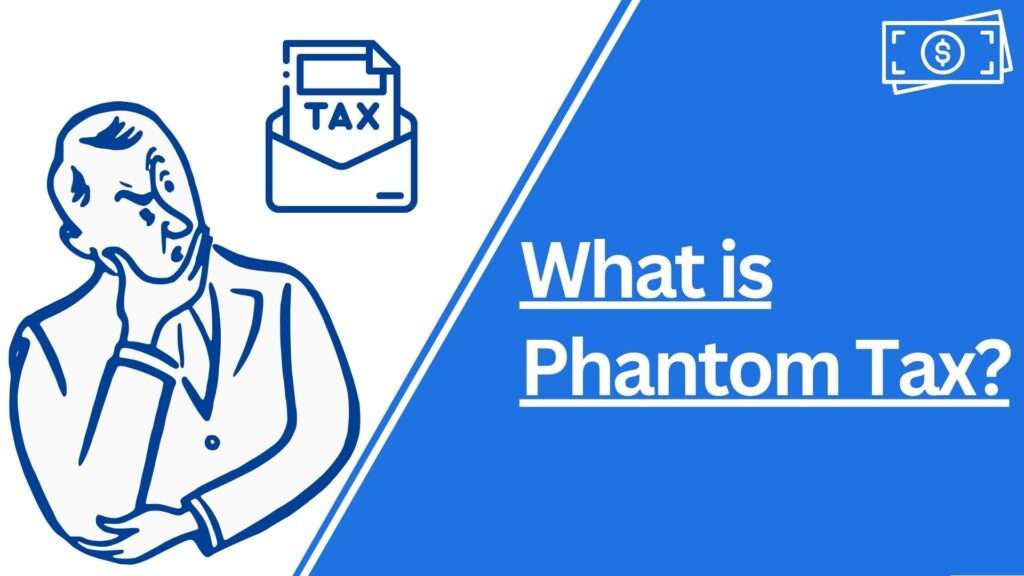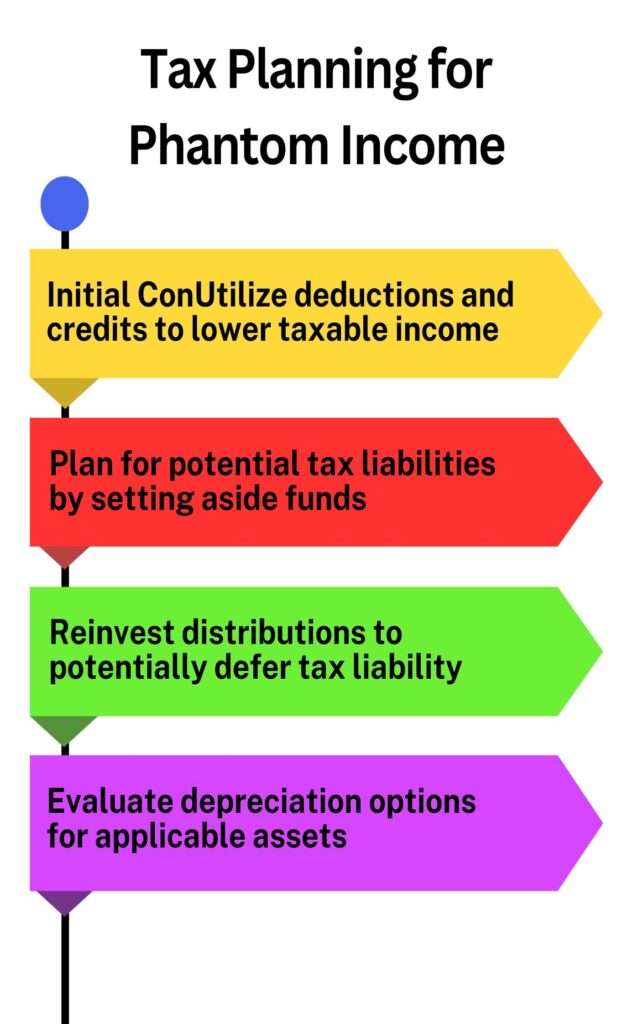
Facing a tax bill without receiving any cash can be confusing and frustrating. Phantom tax arises when taxpayers have taxable income without actually receiving the cash. This situation leads to unexpected tax liabilities and a higher tax burden.
For instance, the IRS still considers income from zero-coupon bonds or distributions from partnerships, even when not received in cash. Taxpayers must pay taxes on this income, increasing their tax liability.
Understanding the concept of phantom tax and planning for it is crucial. This article provides a complete guide to help taxpayers manage phantom income effectively and mitigate its impact.
What is Phantom Tax?
Phantom tax occurs when taxpayers owe taxes on income that has not been actually received. This type of income, known as phantom income, can arise from various sources like partnerships, investments, or distributions. Taxpayers are required to pay tax on the taxable income even if no cash was received.
The Internal Revenue Service (IRS) treats this as income for tax purposes, leading to potential tax liabilities. Tax planning becomes crucial in managing these unexpected tax burdens. Investors and stakeholders must stay informed to mitigate the tax implications effectively.
Impact on Taxpayers:
- Taxable income increases without receiving any cash.
- Creates a tax burden that affects liquidity.
- Requires careful tax planning to manage liabilities.
- Often necessitates consultation with a tax professional.
Examples of Phantom Tax
Phantom tax can result from various financial situations where income is recognized but not actually received. For instance, a partnership might distribute profits on paper without a cash payout. Similarly, capital gains from reinvestments or depreciation recaptures can lead to phantom tax. Taxpayers might find themselves liable for taxes on these unrealized gains or losses. The IRS mandates tax payments on these incomes, which can complicate financial planning and increase the overall tax burden for individuals and businesses.
Common Scenarios:
- Partnerships distributing profits not received as cash.
- Reinvested capital gains triggering tax liabilities.
- Depreciation recaptures increasing taxable income.
- Investments generating income without actual cash distributions.
Tax Planning for Phantom Income

Strategies to Mitigate Impact:
Tax planning is crucial when dealing with phantom income, which increases taxable income without actual cash received. To mitigate the impact, consider the following strategies:
- Utilize deductions and credits to lower taxable income.
- Plan for potential tax liabilities by setting aside funds.
- Reinvest distributions to potentially defer tax liability.
- Evaluate depreciation options for applicable assets.
Professional Advice:
Consulting a tax professional is vital for managing phantom income. They can provide tailored strategies to minimize tax burden and ensure compliance with IRS regulations. Tax professionals can also help identify deductions, understand potential tax implications, and develop a comprehensive tax plan, mitigating unexpected tax liabilities.
Managing Phantom Tax Liabilities
Effective Management Techniques:
Effective management involves proactive planning and informed decision-making. Techniques include:
- Regularly review financial statements to anticipate taxable income.
- Implement tax-efficient investment strategies.
- Utilize depreciation to offset gains and reduce taxable income.
- Maintain adequate liquidity to cover unexpected tax liabilities.
- In addition to financial strategies, prenuptial agreements can help protect assets, ensuring more effective management of potential tax liabilities.
Tools and Resources:
Several tools and resources can assist in managing phantom tax liabilities effectively:
- Tax planning software can help forecast and plan for tax liabilities.
- Financial advisors can offer personalized investment strategies.
- IRS publications provide detailed guidance on relevant tax regulations.
- Online calculators help estimate potential tax impacts and required payments.
Tax Deductions Related to Phantom Income
Phantom income often leads to unexpected tax liabilities. To manage these, specific tax deductions can be utilized. For example, individuals can offset their rental income with mortgage interest deductions.
Additionally, capital losses from other investments might help mitigate the effects of phantom income. Understanding the Internal Revenue Code and relevant tax laws is essential to identify all available deductions.
Engaging an experienced tax professional can aid in maximizing these deductions and potentially avoid significant tax burdens. Effective tax planning strategies should be considered each tax year to address these issues.
Cryptocurrency and Phantom Income
Cryptocurrency transactions can result in phantom income, impacting your tax liabilities. For instance, zero-coupon bonds in the crypto space might increase in value, creating taxable income even if no cash is received.
According to the Internal Revenue Code, such increases are considered phantom income and subject to tax. Crypto investors should report these gains accurately to avoid penalties. Services offering Paybis crypto payouts can help streamline the process of receiving digital assets, but it’s still essential to track and report any resulting gains properly.
It’s crucial to understand the specific tax rules governing cryptocurrency and seek professional advice. Experienced tax professionals can help navigate these complex tax issues, ensuring compliance and optimizing your tax strategy.
Stake and Phantom Income
Stake-related activities often result in phantom income, which arises even if no cash is received. For example, equity partners in firms structured as partnerships may report phantom income from increases in their stake value. This income is still considered taxable and must be reported. An operating agreement might outline how this income is distributed and managed.
Stakeholders should be aware of the potential tax liabilities and understand the tax rules applicable to their investments. Consulting with tax professionals can provide strategies to manage these unexpected tax liabilities effectively, ensuring compliance and optimal tax outcomes.
Conclusion
Phantom tax can lead to unexpected tax burdens, requiring careful tax planning and professional advice. Understanding the tax rules and implications is essential for managing phantom income. Have you ever faced phantom tax issues? Share your experiences and strategies for handling such tax challenges.



